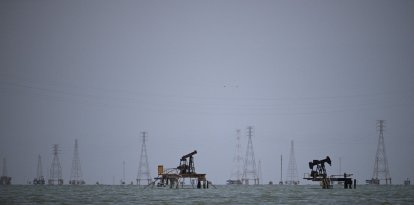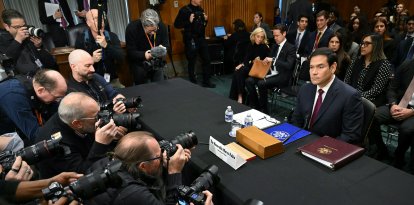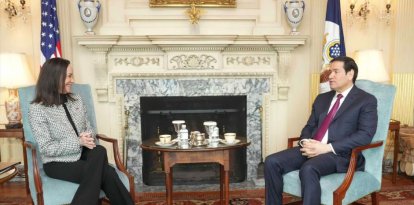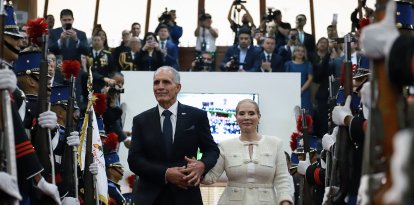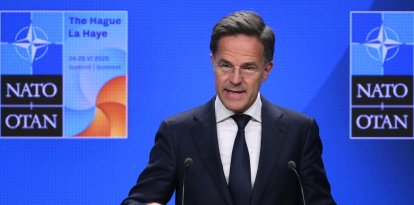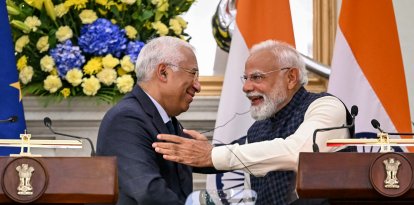Surprise in Argentina: Javier Milei does not achieve victory in the first round and enters a runoff with the leftist Massa
The libertarian economist and the minister of economy will meet on Sunday, November 19 to choose the country's next president.
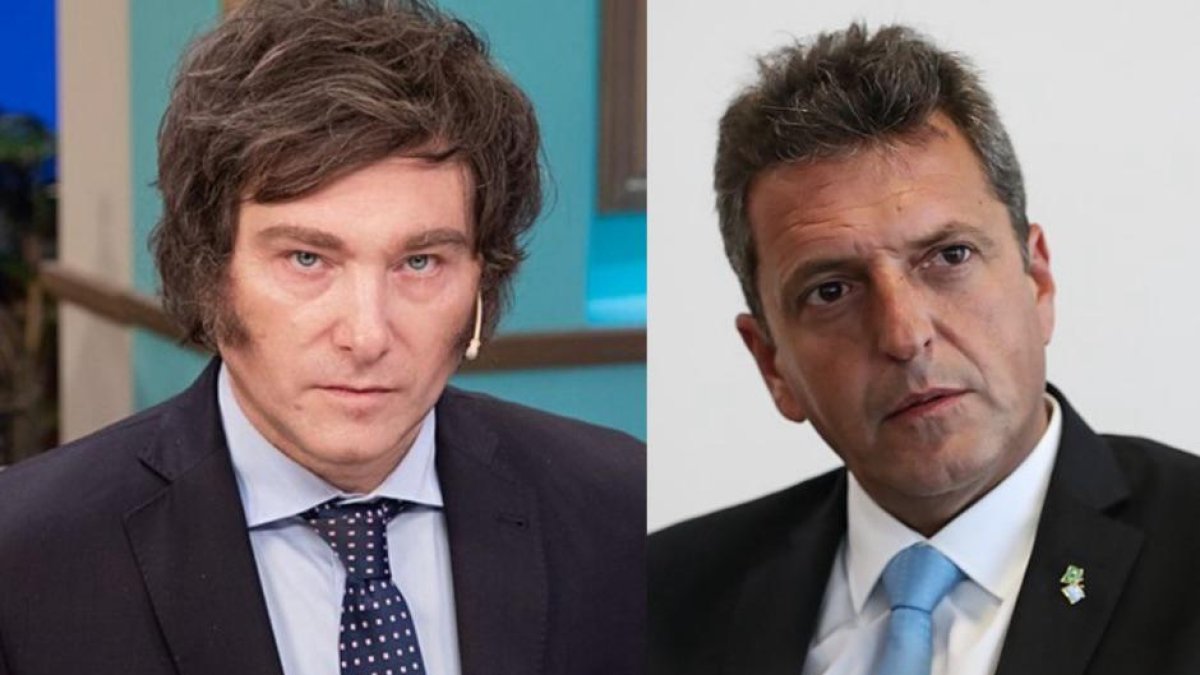
Javier Milei & Sergio Massa / Wikimedia Commons
Argentina will have to wait to meet its next president. Although everything indicated that Javier Milei would take first place in the presidential elections and avoid a second round, Sergio Massa, the Peronist candidate, took first place. Since none of them exceeded 45% of the votes, they will face each other in a second round on November 19 to elect the next president of Argentina.
With more than 80% of the votes counted, an irreversible trend, Massa garnered 36% of the votes, surpassing Milei's 30% and Patricia Bullrich's 23%, the center-right candidate of former president Mauricio Macri. With these results, Massa and Milei will duke it out for the presidency in a second round, a scenario already experienced in 2015.
Massa has inflation at more than 100% annually in his backpack, but he surprised everyone and came first in the general elections. His campaign strategy proved effective in its three main points: recovering the votes lost in the northern provinces, in the Province of Buenos Aires (the most populated district in the country), and scaring the population about Milei's proposals. For this last point, he carried out what local analysts called a "fear campaign," claiming that the election of Milei would mean a "jump into the void" for the country, especially for the middle and lower class. In turn, he implemented the famous "platita plan," which consisted of implementing a series of beneficial measures in the short term for the most humble sectors.
Cristina Kirchner's party defied the polls and rose nine percentage points compared to the August primaries, where she had obtained 27% of the votes.
Milei failed to win in the first round
In the days before the election, the question was whether Milei would manage to win in the first round or if another election would be necessary, discounting the fact that he would be the candidate with the most votes, as it happened in the primaries. However, when 6:00 p.m. on Sunday arrived in Argentina, the media began to talk about the results, and that scenario began to fade little by little.
The libertarian rose slightly less than one point compared to the August elections but was ranked second after the final count. In turn, he lost some provinces that he had won in the primaries, all to Massa's detriment.
Milei or Massa, head to head for the presidency in Argentina
With the aforementioned results, Argentina will choose its next president on Sunday, November 19, in a second round between Javier Milei and Sergio Massa. The candidates will have a debate to contrast their positions before the voters, which will be held one or two weeks before the elections. The issue that divides the two candidates: a larger federal government (Massa) or a smaller federal government (Milei)
Argentina experienced a similar scenario in 2015 when Daniel Scioli and Mauricio Macri battled it out. On that occasion, Macri, the then mayor of the City of Buenos Aires, put an end to 12 years of Kirchner's government and achieved the presidency.
Polls failed again
As reported by Voz Media, the poll's average before the elections unanimously saw Milei comfortably first, followed distantly by Massa and Bullrich. However, as in the primaries, where everyone gave the libertarian economist third place, the results were quite different.
Argentina Results
Sergio Massa (Union por la Patria): 36%
Javier Milei (La Libertad Avanza): 30%
Patricia Bullrich (Juntos por el Cambio): 23%
Juan Schiaretti (Hacemos por Nuestro País): 7%
Myriam Bregman (Frente de Izquierda): 2%














